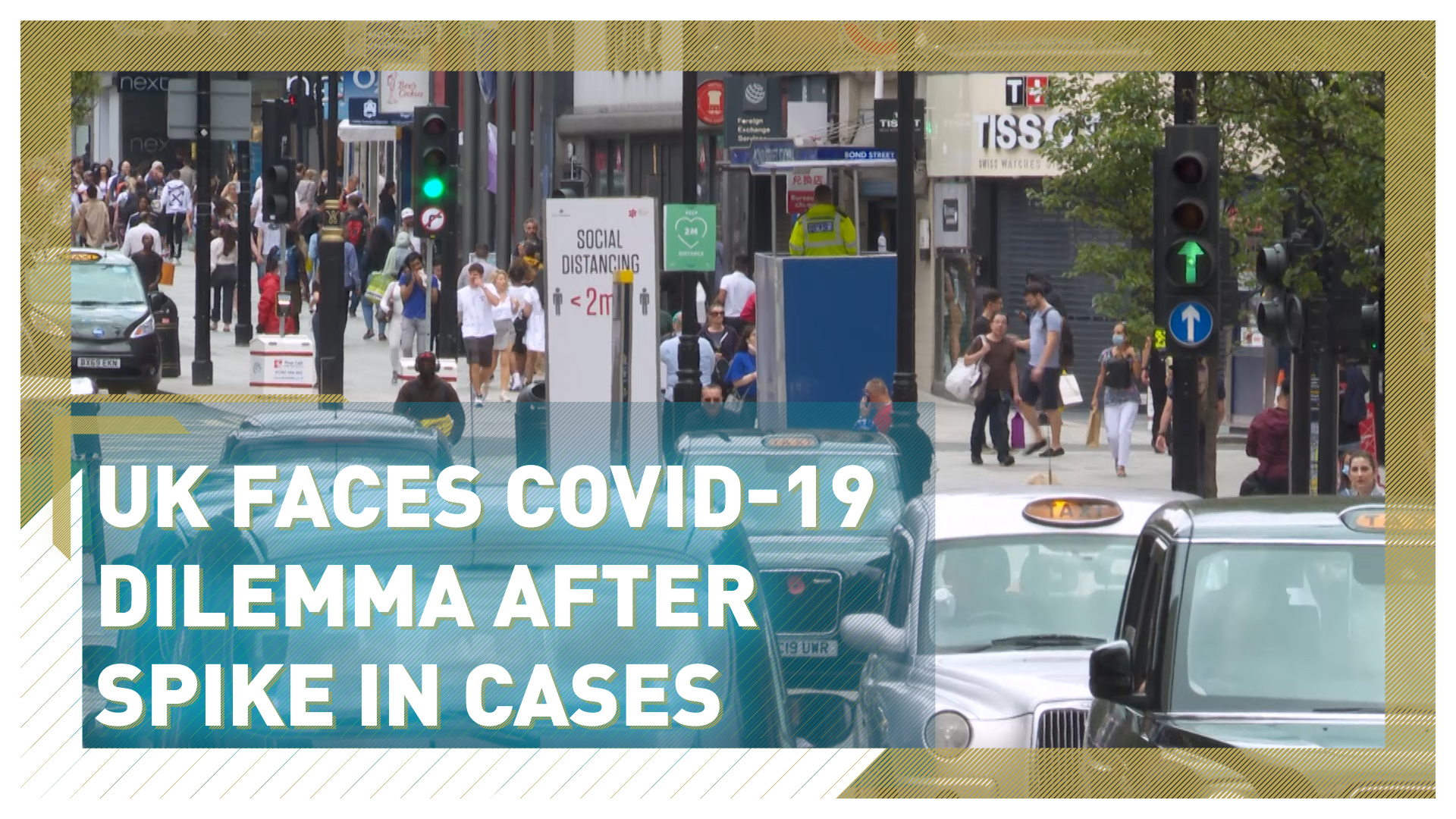02:15

With the highest official COVID-19 death toll in Europe, the UK's fight against the virus has been a testing one.
According to the government's own figures, more than 46,000 people have died in the UK from the disease as England, in particular, struggled with the initial stages of the pandemic.
There has been much progress in the fight against the virus in recent months. Daily deaths are now in the dozens, rather than the hundreds.
But officials are growing increasingly worried about a spike in cases across the country in recent days and concern over a possible "second wave" is weighing on decision-makers, not least Prime Minister Boris Johnson.

Consumers have returned to UK high streets but a rise in COVID-19 cases could damage public and business confidence. /CGTN
Consumers have returned to UK high streets but a rise in COVID-19 cases could damage public and business confidence. /CGTN
Britain now stands at a COVID-19 crossroads. Does it loosen its lockdown further or tighten restrictions to prevent another rise in infection rates?
The government insists the NHS is now able to cope with an uptick in cases, which is a very different picture from late March, when the lockdown was first introduced.
In the past week, officials have also taken decisive action to curb the threat of a resurgence.
Read more: Which states and territories have zero COVID-19 deaths?
Last week, local lockdowns were announced for parts of northern and central England – a move that is impacting millions of people.
And on Friday, Johnson appeared on national television to confirm that the next phase in relaxing England's lockdown would be delayed until at least 15 August. Businesses such as bowling alleys, indoor theaters and music venues will have to remain shut until further notice.

Boris Johnson is reportedly considering restricting travel in and out of London to reduce the spread of COVID-19. /CGTN
Boris Johnson is reportedly considering restricting travel in and out of London to reduce the spread of COVID-19. /CGTN
Public opinion may be supportive of more decisive action, but the government is reportedly considering even tougher measures.
British newspaper, The Times, claims the prime minister has ordered what he described as "nuclear plans" to be drawn up in a bid to avoid another nationwide lockdown.
According to the reports, millions of people over the age of 50 could be told to stay at home, with travel in and out of the capital London also restricted.
Downing Street dismissed the reports as "speculative," according to the BBC, but what they indicate is a willingness for the government to act to avoid the sort of lockdown that has crippled Britain's economy in recent months.

Johnson must balance the need to enforce targeted lockdowns and save lives with the pressing need to kick-start economic growth. /CGTN
Johnson must balance the need to enforce targeted lockdowns and save lives with the pressing need to kick-start economic growth. /CGTN
Analysts think the world's sixth largest economy could be particularly vulnerable to the economic shocks of COVID-19, given that it is set to end its Brexit transition period with the European Union at the end of 2020.
The EU is the UK's largest trading partner, with official figures showing total trade was worth more than $879 billion last year.
As concerns over a second wave grow, the key challenge for Johnson will be to try to balance the need to enforce targeted lockdowns – which will help save lives – with the pressing need to kick-start economic growth.
Prioritizing one will likely come at a direct cost to the other.
But, if cases continue to rise, both public and business confidence could suffer.
Read more: Rapid 30-minute COVID-19 test developed by U.S. scientists